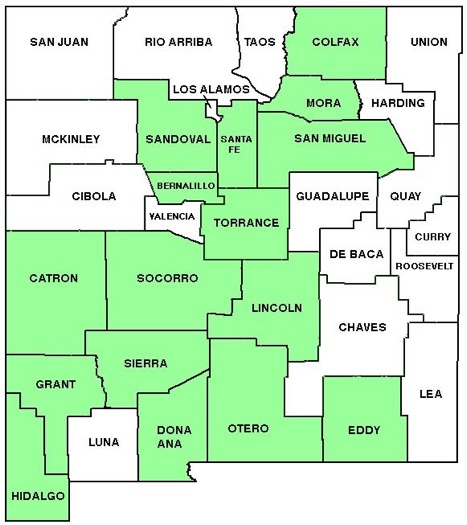WILDFLOWERS OF NEW MEXICO

With thick, yellowish, cream-colored stems containing no chlorophyll, this parasitic plant gets its nourishment from roots of pines and hardwoods. Clumps with numerous cylindrical 4–10-inch tall stems burst through the leaf litter on the forest floor. Note the dense spike of tiny, tubular flowers that obscures the stem.
FLOWERS: Spring, summer. Tubular flowers yellowish turning rusty brown, 3/4-inch long (20 mm), with two lips, upper lip arching, lower lip with 3 lobes; flowers form dense spikes that almost obscure the stem; fruit a dense cluster of round, yellowish capsules surrounded by brown, withered flower parts.
LEAVES: Alternate, reduced, scale-like, obscure.
HABITAT: Sandy, gravelly soils, shaded forest floor; mixed conifer and hardwood forests.
ELEVATION: 5,000-10,300 feet.
RANGE: AZ, CO, NM, TX.
SIMILAR SPECIES: The dense spikes of tube-like flowers and thick stems distinguish this flower from closely related Broomrapes in the Orobanche genius.
NM COUNTIES: Mountains through central NM at mid- to high-elevation wooded habitats: Bernalillo, Catron, Colfax, Dona Ana, Eddy, Grant, Hidalgo, Lincoln, Los Alamos, Mora, Otero, San Miguel, Sandoval, Santa Fe, Sierra, Socorro, Torrance.









GROUND CONE, MEXICAN CANCER-ROOT
CONOPHOLIS ALPINA VAR. MEXICANA (CONOPHOLIS MEXICANA)
Broomrape Family, Orobanchaceae
Perennial herb



























THE CONTENTS OF THIS WEBSITE ARE COPYRIGHTED AND CANNOT BE USED
WITHOUT PERMISSION OF GEORGE OXFORD MILLER

















Tubular flowers with arching upper lip, lobed lower lip.

Stem with fruiting capsules.









Range Map for
Conopholis alpina








EMAIL ME







